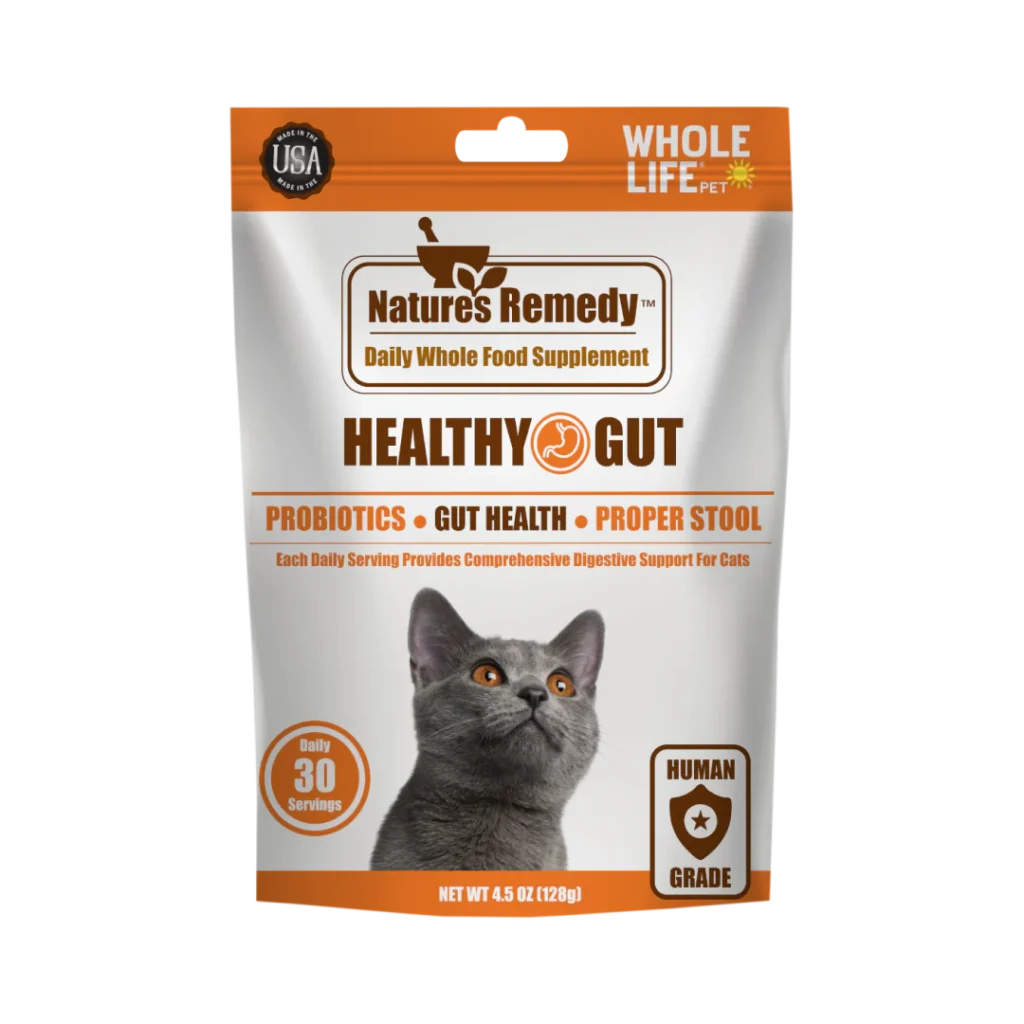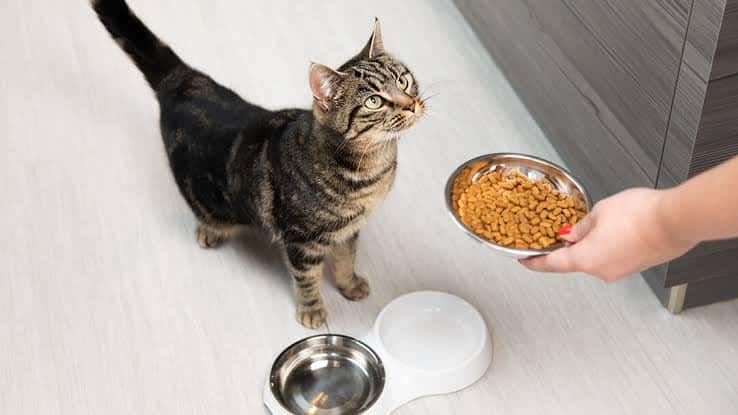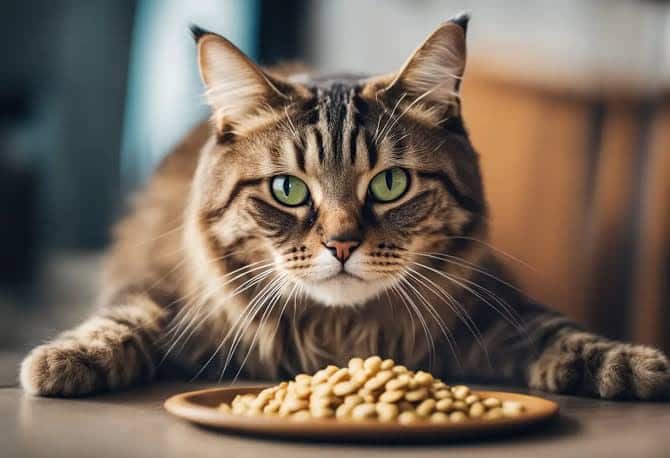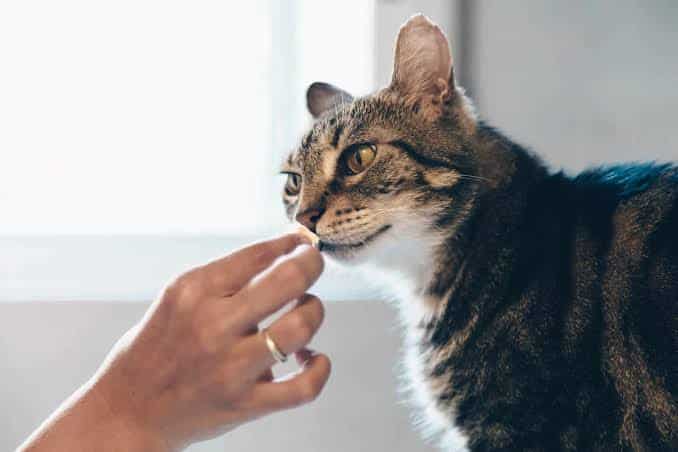Are you a Cat Lover? Then this article is for you. Go through “The Essential Guide To Cat Supplements” to know all about Cat Supplements. Other subtopics we shall discuss are: What Are Cat Supplements?, Benefits Of Cat Supplements, Types Of Cat Supplements And Their Uses, How To Choose The Right Supplement For Your Cat, etc.
Introduction To Cat Supplements
Cats are beloved companions that bring joy and comfort to millions of households around the world. As responsible cat owners, it is our duty to ensure that our furry friends have everything they need to thrive and live a healthy life. While a balanced diet is crucial for their well-being, there are certain circumstances where cat supplements may be necessary to support their overall health.
In this comprehensive guide, we will explore the essential information about cat supplements, including their benefits, types, and how to choose the right ones for your feline companion. Whether you are a new cat owner or a seasoned enthusiast, this guide will provide you with the knowledge and tools to make informed decisions about cat supplements and promote the well-being of your beloved pet.
What Are Cat Supplements?
Cat supplements are additional dietary elements, like vitamins, minerals, or other nutrients, designed to complement a cat’s regular diet. They can address specific health needs, support overall well-being, or cater to conditions like joint health or coat quality. Always consult a vet before introducing supplements to your cat’s diet.

Benefits Of Cat Supplements
Cat supplements can play a crucial role in improving the health and well-being of our feline companions. While cats typically receive their essential nutrients from a balanced diet, there are certain situations where supplementation can provide additional benefits.
One of the key benefits of cat supplements is promoting optimal overall health. Supplements can help fill in any nutritional gaps that may be present in a cat’s diet, ensuring they receive all the necessary vitamins, minerals, and antioxidants. This can support their immune system, enhance their energy levels, and help maintain a healthy coat and skin.
Additionally, cat supplements can aid in managing specific health concerns. For example, joint supplements with ingredients such as glucosamine and chondroitin can provide support for cats with arthritis or joint stiffness. Similarly, supplements rich in omega-3 fatty acids can improve coat health and reduce inflammation in cats with skin allergies or conditions.
Furthermore, cat supplements can be beneficial in supporting specific life stages or conditions. For instance, there are supplements formulated for kittens to support their growth and development, while others cater to the needs of senior cats to promote joint health and cognitive function. Additionally, supplements can be used to address specific conditions such as urinary tract health or dental health.
More Information
It is important to note that cat supplements should not replace a balanced diet. They are meant to complement a cat’s existing nutrition and should be used under the guidance of a veterinarian. Before starting any supplementation regimen, it is essential to consult with your veterinarian to ensure that the supplements are appropriate for your cat’s specific needs and to determine the proper dosage.
Cat supplements offer numerous benefits when used appropriately. They can contribute to overall health and vitality, manage specific health concerns, and support different life stages and conditions. Working in collaboration with a veterinarian, cat owners can make informed decisions regarding the use of supplements and provide their feline companions with the best possible care.
See Also: 10 different Cat Breeds and their Personalities

Types Of Cat Supplements And Their Uses
There are a variety of cat supplements available on the market today, each serving a specific purpose in promoting feline health and well-being. It is important for cat owners to understand the different types of supplements available and how they can benefit their furry friends.
One of the most common types of cat supplements is a multivitamin. These supplements are formulated to provide cats with essential vitamins and minerals that may be lacking in their diet. Multivitamins can help support a cat’s overall health, including their immune system, coat, and digestive system.
Another type of cat supplement is a joint support supplement. These supplements are especially beneficial for older cats or cats with joint issues. They typically contain ingredients such as glucosamine and chondroitin, which can help promote joint health and mobility.
Omega-3 fatty acid supplements are also popular for cats. These supplements contain essential fatty acids, such as EPA and DHA, which can help support a cat’s skin and coat health. Additionally, omega-3 fatty acids have been shown to have anti-inflammatory properties, making them beneficial for cats with allergies or joint issues.
More Information
Probiotic supplements are another type of cat supplement that can be beneficial for digestive health. Probiotics are live bacteria and yeasts that are beneficial for gut health. They can help promote a healthy balance of bacteria in a cat’s digestive system, which can in turn support overall digestive health and immune function.
Lastly, there are specialized supplements available for specific conditions or issues, such as urinary tract health or stress reduction. These supplements are formulated to address specific needs and can be a valuable addition to a cat’s diet.
It is important to note that before starting any supplement regimen for a cat, it is recommended to consult with a veterinarian. They can provide guidance on which supplements may be appropriate for a specific cat based on their individual needs and health conditions.
See Also: Capture Your Cat’s Adventures with the Best Cat Camera Collar
How To Choose The Right Supplement For Your Cat
Selecting the right supplement requires careful consideration. This guide will help you navigate the world of cat supplements, ensuring you make informed choices for your feline friend.
Consult With Your Veterinarian
Before introducing any new supplement, consult your veterinarian. They can provide valuable insights into your cat’s specific needs and potential health concerns, guiding you toward supplements that align with your cat’s health requirements.
Identify Specific Health Needs
Different cats may have varying health needs. Whether your cat requires joint support, digestive aids, or specific vitamins, pinpointing their individual requirements will help you choose supplements that address their unique health concerns.
Choose High-Quality Ingredients
Opt for supplements with high-quality, easily digestible ingredients. Look for natural sources of vitamins, minerals, and other nutrients to ensure your cat receives the best possible nutritional support. Avoid supplements with excessive fillers, artificial additives, or unnecessary preservatives.
Form Of Supplement
Consider the form of supplement that suits your cat best. Whether it’s capsules, chewable treats, liquids, or powders, selecting a form that aligns with your cat’s preferences and ease of administration is key to ensuring they consume the supplement consistently.
Read Product Reviews
Research and read reviews from other cat owners about specific supplements. Real-life experiences can provide valuable insights into the effectiveness and palatability of the product. Keep an eye out for feedback related to improvements in a cat’s health or any potential side effects.
Check For Allergens
Be aware of your cat’s allergies and sensitivities when choosing supplements. Carefully review the ingredient list to ensure that the supplement does not contain any substances that could trigger allergic reactions in your cat.
Age And Life Stage Considerations
Consider your cat’s age and life stage when selecting supplements. Kittens, adults, and senior cats may have different nutritional requirements. Choose supplements that cater to your cat’s specific life stage to provide targeted support.
Monitor Your Cat’s Response
Once you’ve introduced a new supplement, monitor your cat’s response. Look for positive changes in their health, such as increased energy, improved coat condition, or enhanced mobility. If you notice any adverse reactions, consult your veterinarian promptly.

Proper Dosage And Administration Of Cat Supplements
When acquainting your cat with something unfamiliar, initiate the process gradually. Start by incorporating modest quantities of the supplement into their meals, then progressively raise it to the complete recommended dosage within a span of seven to 10 days, allowing them to acclimate to the scent or flavor.
Ensure thorough blending of powders, liquids, and gels with your cat’s food, and break chewable treats into smaller fragments. Enhance the appeal by incorporating a flavorful touch, like tuna juice or protein-rich toppings, to their supplemented meals.
In summary, exercise moderation, seek advice from your cat’s vet before adding a supplement, be vigilant for uncommon reactions or symptoms, ideally limit yourself to one supplement at a time.
See Also: All You Need to Know About Petlab Probiotic Chews
Potential Risks And Side Effects Of Cat Supplements
Caring for our beloved feline companions involves providing them with a balanced and nutritious diet. However, as pet owners, we may sometimes feel compelled to enhance our cats’ well-being with supplements. While some supplements can indeed be beneficial, it’s crucial to be aware of potential risks and side effects that may accompany their use.
Overdosing on Vitamins and Minerals
Cat supplements often contain vitamins and minerals that are essential for their health. However, overzealous supplementation can lead to overdosing, causing adverse effects. For instance, excess Vitamin D can lead to toxicity, causing symptoms like vomiting, increased thirst, and even kidney damage.
Interactions with Medications
It’s vital to consult with a veterinarian before introducing supplements, especially if your cat is on any medications. Certain supplements may interact negatively with prescribed drugs, potentially diminishing their effectiveness or exacerbating side effects.
Digestive Upset
Cats can have sensitive stomachs, and introducing new supplements may lead to digestive issues. Common side effects include diarrhea, vomiting, or a lack of appetite. Monitoring your cat’s response to supplements is crucial to identify any signs of digestive discomfort.
Allergic Reactions
Just like humans, cats can develop allergies to certain substances. Some supplements may contain allergens or additives that can trigger allergic reactions in susceptible cats. Keep an eye out for symptoms such as itching, swelling, or difficulty breathing.
Quality Control Issues
Not all cat supplements are created equal. Poorly manufactured or low-quality supplements may contain contaminants, impurities, or inaccurate ingredient concentrations. It’s essential to choose supplements from reputable brands with a history of quality control.
Weight Management Concerns
Some supplements, particularly those containing added flavors or calories, can contribute to weight gain. Weight management is crucial for a cat’s overall health, and excessive weight gain can lead to various health issues, such as diabetes and joint problems.
The Importance Of Consulting With A Veterinarian On Cat Supplements
In the quest for promoting our cat’s health and longevity, consulting with a veterinarian is a non-negotiable step when considering cat supplements. Their professional insights, tailored advice, and commitment to your cat’s individual needs play a crucial role in ensuring that the supplements enhance rather than compromise your feline companion’s well-being.
The benefits include:
Tailoring to Individual Needs
Every cat is unique, with distinct dietary requirements and health considerations. A veterinarian can assess your cat’s specific needs and guide you on whether supplements are necessary, tailoring recommendations to your cat’s age, breed, health status, and lifestyle.
Avoiding Over-supplementation
Over-supplementing can have adverse effects on a cat’s health. Veterinarians possess the expertise to determine if your cat is already receiving essential nutrients through their regular diet and can advise against unnecessary supplementation, preventing potential health risks.
Preventing Interactions with Medications
Cats may be on medications for various reasons, and certain supplements can interact negatively with prescribed drugs. A veterinarian’s guidance ensures that the introduction of supplements won’t compromise the efficacy of medications or lead to unforeseen side effects.
Monitoring for Allergic Reactions
Cats, like humans, can develop allergies to specific substances. A veterinarian’s expertise helps identify potential allergens in supplements and enables a careful selection of products to minimize the risk of allergic reactions.
Professional Quality Control
Veterinarians are well-versed in assessing the quality and safety of cat supplements. They can recommend reputable brands with stringent quality control measures, minimizing the risk of exposure to contaminants or inaccuracies in ingredient concentrations.
Guidance on Dosage and Administration
Determining the correct dosage of supplements for your cat can be challenging. Veterinarians can provide precise recommendations based on your cat’s individual needs, ensuring optimal efficacy without the risk of overdosing.
Detecting Underlying Health Issues
Before introducing supplements, a veterinarian can conduct a thorough health examination to identify any underlying issues that may require targeted treatment. Addressing these issues first can have a more profound impact on your cat’s overall well-being.
See Also: Petlab Probiotics
Conclusion And Final Thoughts
Caring for your cat involves more than just providing food and shelter. By understanding your cat’s nutritional needs and incorporating the right supplements, you can contribute to their overall well-being and enhance their quality of life.
Remember, a well-balanced diet, coupled with targeted supplementation under the guidance of your veterinarian, is the key to keeping your feline friend happy and healthy for years to come.

